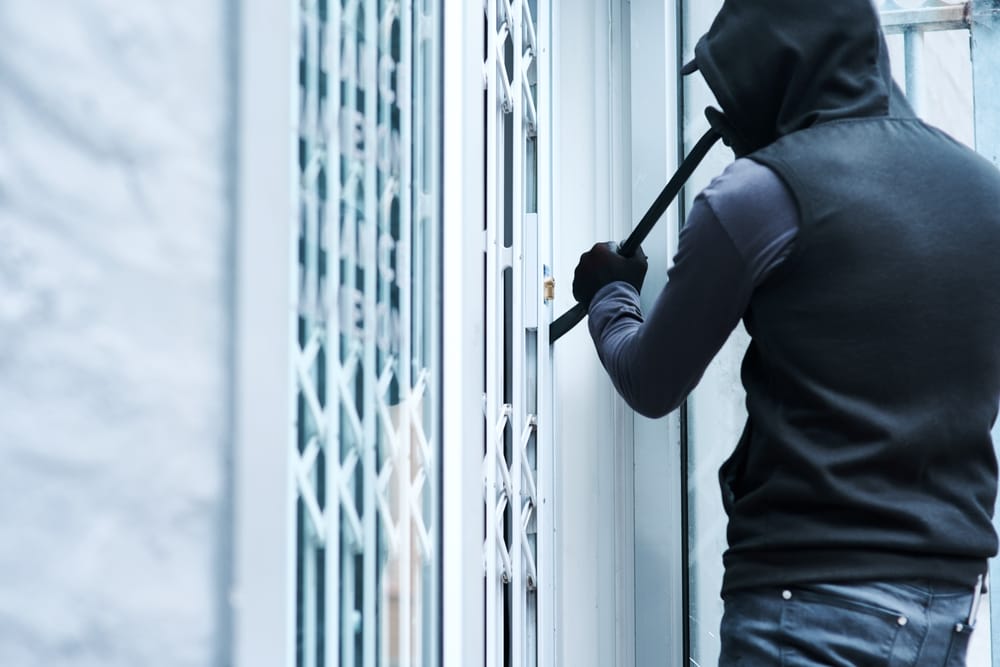
Retirees often assume their neighborhoods are safe, but statistics show that burglars frequently target homes they believe are easier to access. Seniors living alone or on fixed incomes may not invest in upgrades, leaving properties vulnerable. Break-ins don’t just cause financial loss—they create lasting stress and fear. By addressing common weak points, seniors can protect both their homes and their peace of mind.
1. Weak Entry Points: Doors and Windows
The most obvious vulnerability is often the most overlooked. Many seniors rely on old locks or flimsy doors that burglars can bypass in seconds. Windows without secure latches or reinforced glass are equally easy targets. Retirees who invest in deadbolts, strike plates, and window locks dramatically reduce risk. Adding motion-sensor lights near entry points further deters intruders. Simple upgrades transform weak spots into strong defenses.
2. Poor Lighting Around the Property
Burglars prefer darkness, and homes with dim or inconsistent lighting are prime targets. Seniors who neglect outdoor lighting unintentionally invite trouble. Pathways, garages, and backyards should all be illuminated with energy-efficient bulbs or solar-powered fixtures. Motion-activated lights are especially effective, startling intruders and alerting neighbors. Good lighting not only prevents crime but also reduces fall risks for retirees moving around at night.
3. Lack of Visible Security Measures
Homes without visible deterrents—like cameras, alarms, or even warning signs—signal opportunity to burglars. Seniors may assume these systems are too expensive, but affordable options now exist. Doorbell cameras, window decals, and basic alarm systems provide both real and perceived protection. Even fake cameras or signs can discourage intruders. Retirees who make security visible send a clear message: this home is not an easy target.
Why Burglars Target Seniors
Criminals often assume seniors are less likely to invest in modern security or respond quickly to threats. They may also believe retirees keep cash or valuables at home. This perception makes seniors disproportionately vulnerable. By addressing weak points, retirees challenge those assumptions and reduce risk. Awareness of why seniors are targeted helps motivate proactive protection.
Affordable Fixes That Work
Securing a home doesn’t require thousands of dollars. Seniors can start with low-cost measures like reinforcing locks, adding lighting, and installing basic alarms. Community programs sometimes provide free or discounted security upgrades for retirees. Local police departments may also offer home safety inspections. Affordable fixes provide peace of mind without straining retirement budgets.
A Safer Retirement Starts at Home
Retirement should be about comfort, not fear. By addressing weak entry points, improving lighting, and adding visible deterrents, seniors can transform vulnerable homes into secure sanctuaries. These steps protect property, preserve independence, and provide peace of mind. A safer retirement begins with small, practical changes that make a big difference.
Have you upgraded your home security recently? Sharing your tips could help other seniors feel safer.
You May Also Like…
- 10 Home Security Mistakes You’re Probably Making Right Now
- 5 Best Home Security Cameras, According to Consumers
- Can Your Smart Home Betray You? Security Experts Sound the Alarm
- The Benefits of Investing in Home Computer Security
- Security Lessons Learned From “Home Alone”

Teri Monroe started her career in communications working for local government and nonprofits. Today, she is a freelance finance and lifestyle writer and small business owner. In her spare time, she loves golfing with her husband, taking her dog Milo on long walks, and playing pickleball with friends.






Comments